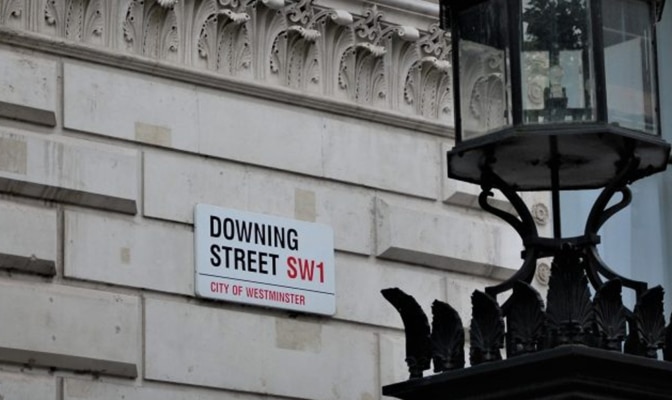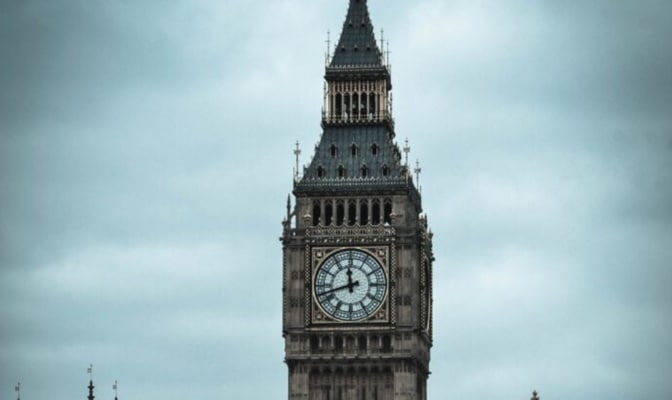Autumn Statement analysis
Share on LinkedIn

After a period of economic turmoil culminating in the resignation of Liz Truss and the appointment of Rishi Sunak as her successor, Chancellor Jeremy Hunt today delivered his first Autumn Statement. Against a backdrop of soaring inflation, rising interest rates, low growth and higher borrowing costs the Chancellor announced a fiscal consolidation of £55 billion made up of tax changes and spending cuts. The package is designed to reassure markets that the government has a credible plan to deal with an economic downturn without resorting to unfunded borrowing. Hunt acknowledged the country is in recession and warned that things will get worse before getting better.
The economic challenges facing the Chancellor were laid bare ahead of his speech. The Bank of England projected that the U.K. is at the beginning of its longest recession on record. The Office for National Statistics confirmed that the CPI measure of inflation rose by 11.1% in the year to October 2022, a rate of inflation not seen since 1981. And the Office of Budget Responsibility confirmed that the country is in recession, forecasting that the UK economy will contract 1.4% next year.
Speaking in the House of Commons, Hunt said his priorities would be “stability, growth, and public services.” The package of tax changes and spending decisions is designed to get the UK out of a recession as quickly and with as little pain as possible. Many will say that today’s statement marks a return to austerity, and it certainly takes the tax burden to levels not seen for 70 years. But the Chancellor’s argument was simple — there is no alternative. On the fundamental area of government borrowing, he said that today’s decisions mean that borrowing will be more than halved and that this commitment to reduce borrowing was the right thing to do because “as Conservatives, we do not leave our debts to the next generation.”
Just one month into the job, Hunt faced a decision between frontloading the pain required to rebalance the economy and delaying the impact of the new measures in order to prevent further political damage. He said that “credibility cannot be taken for granted” and in balancing the books, the Chancellor is aiming to demonstrate fiscal discipline to restore the government’s recently lost standing with financial markets.
A desire to honour the manifesto commitment not to increase the headline rates of income tax, national insurance or VAT left the Chancellor reliant on stealth tax rises. The heavy lifting will be done by ‘fiscal drag’ – freezing the threshold at which people start paying income tax and NICs and reducing the threshold for the 45p rate of income tax to £125,140.
There will also be a big expansion in windfall taxes on the energy industry: the tax on the profits of oil and gas firms will increase from 25% to 35% and be extended until March 2028, plus there will be a new ‘temporary’ 45% tax on low carbon electricity generating companies. The Chancellor said he expected the two taxes to raise £14bn next year and with the expanded oil and gas levy running for over five years, they represent a significant revenue raising measure over the period. The size and duration will raise eyebrows in some quarters because the Tories criticised Labour’s original plans for a windfall tax, arguing that it would deter investment. Together, all the changes mean that taxes as a proportion of our national income will rise by just over 1% over the next five years.
The Prime Minister and Chancellor know that there will be economic pain and criticism of a ‘return to austerity’ and were keen to ensure that the package is seen as “fair” – hence reducing the 45% threshold on the one hand and uprating benefits and pensions on the other. To soothe some of the pain, the Chancellor said that working age benefits will rise by 10.1%. He also confirmed further support with energy bills for those on low incomes, and announced that the Triple Lock will be protected, meaning pensioners will also get a rise in the State Pension and the Pension Credit in line with inflation. And despite the spending cuts and tax rises, there is still an attempt to focus on growth, coming in the form of infrastructure and spending on education.
The Chancellor’s significant public spending cuts usher in an era of restraint unseen since George Osborne’s time at the Treasury. Departmental spending will remain at the levels agreed in the most recent spending review, but without extra funding to manage the impact of inflation. To ease the pain, Hunt decided to defer the biggest cuts until 2025 (therefore coming after the next election) in the hope that the economy will start to recover, allowing him to reverse some of the proposed reductions in spending. The Tories may not be in power by then, so there is no guarantee the biggest cuts will come to pass. The Chancellor’s political calculation is that this boxes Labour in so that as we approach the next election, they will have to say whether they will stick to plans to cut public spending and if not, how they will balance the books.
The politics for Sunak and Hunt are tricky, and support for today’s announcement across the Conservative parliamentary party cannot be assumed. Many on the right of the party are likely to be unhappy with the higher burden of taxation. Tory backbenchers know the country is heading into a recession but fear that responding by cutting public spending too far, and increasing taxes by too much, risks making things much worse than they would otherwise be. Hunt’s dilemma of course was that any watering down of his plan to balance the books risked unsettling the financial markets again and pushing up the cost of borrowing. One topic of conversation in the House of Commons’ tea rooms and on WhatsApp groups in the days ahead will be whether Sunak and Hunt are so set on showing that the government is fiscally responsible that they end up overcorrecting on the perceived mistakes that Liz Truss and Kwasi Kwarteng made. To reassure Tory MPs, the Chancellor and his ministerial team will be reiterating what he said in his speech, that “we want low taxes and sound money, but Conservatives know that sound money comes first.”
The aim today was to reassure markets (which have been calm so far at the time of writing) with a renewed commitment to fiscal discipline, and to show voters that the Conservatives have a plan to reduce the cost of living and limit increases in mortgage rates. If Hunt can stabilise the economy, the Conservatives hope to be able to say that today’s tough decisions have paid off, giving them a fighting chance in 2024. But if they don’t achieve this, the election is probably lost. Unlike some administrations in years gone by, Prime Minister and Chancellor are so far working closely together, and this is very much a ‘government’ package from Sunak and Hunt. The statement represents a significant political moment for them, setting the tone for the administration from now until the next election. Their task is to turn this exercise in fiscal discipline into a platform for a Conservative victory.





